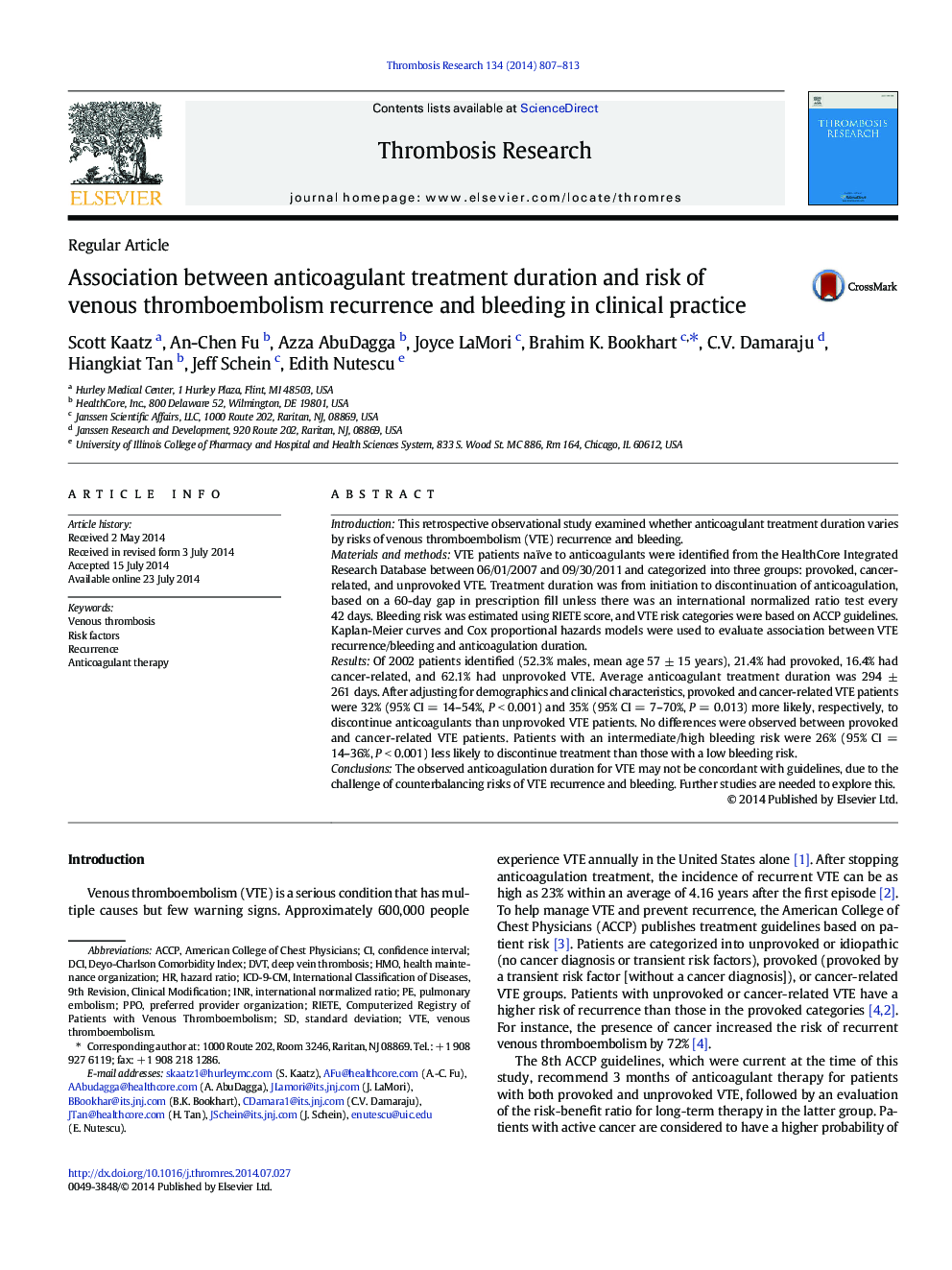| کد مقاله | کد نشریه | سال انتشار | مقاله انگلیسی | نسخه تمام متن |
|---|---|---|---|---|
| 6001085 | 1182944 | 2014 | 7 صفحه PDF | دانلود رایگان |
- Provoked/cancer-related VTE patients had shorter treatment than unprovoked patients.
- The 90-day discontinuation rates were 18% for warfarin and 21% for all anticoagulants.
- Treatment durations in VTE guidelines may not be followed in the real world practice.
- Possibly due to the challenge of balancing risks of VTE recurrence and bleeding.
IntroductionThis retrospective observational study examined whether anticoagulant treatment duration varies by risks of venous thromboembolism (VTE) recurrence and bleeding.Materials and methodsVTE patients naïve to anticoagulants were identified from the HealthCore Integrated Research Database between 06/01/2007 and 09/30/2011 and categorized into three groups: provoked, cancer-related, and unprovoked VTE. Treatment duration was from initiation to discontinuation of anticoagulation, based on a 60-day gap in prescription fill unless there was an international normalized ratio test every 42 days. Bleeding risk was estimated using RIETE score, and VTE risk categories were based on ACCP guidelines. Kaplan-Meier curves and Cox proportional hazards models were used to evaluate association between VTE recurrence/bleeding and anticoagulation duration.ResultsOf 2002 patients identified (52.3% males, mean age 57 ± 15 years), 21.4% had provoked, 16.4% had cancer-related, and 62.1% had unprovoked VTE. Average anticoagulant treatment duration was 294 ± 261 days. After adjusting for demographics and clinical characteristics, provoked and cancer-related VTE patients were 32% (95% CI = 14-54%, P < 0.001) and 35% (95% CI = 7-70%, P = 0.013) more likely, respectively, to discontinue anticoagulants than unprovoked VTE patients. No differences were observed between provoked and cancer-related VTE patients. Patients with an intermediate/high bleeding risk were 26% (95% CI = 14-36%, P < 0.001) less likely to discontinue treatment than those with a low bleeding risk.ConclusionsThe observed anticoagulation duration for VTE may not be concordant with guidelines, due to the challenge of counterbalancing risks of VTE recurrence and bleeding. Further studies are needed to explore this.
Journal: Thrombosis Research - Volume 134, Issue 4, October 2014, Pages 807-813
